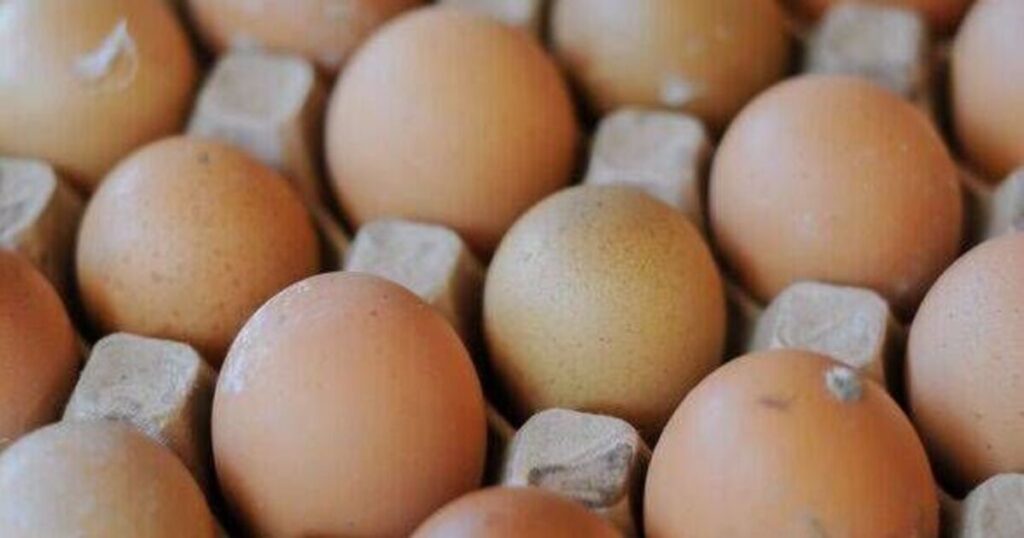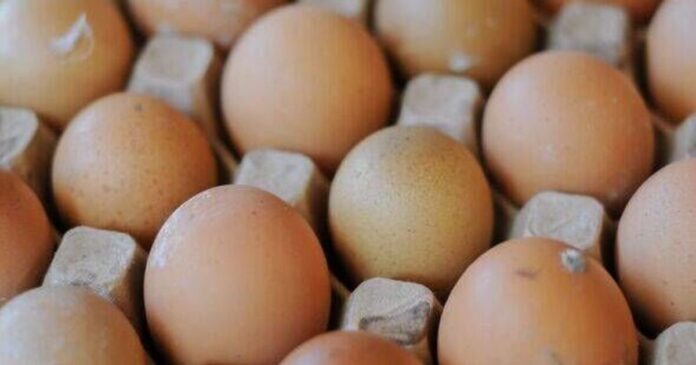
Eggs remain a staple purchase during weekly grocery runs, ideal for swift lunches or that perfect poached breakfast treat, yet shoppers are being advised to store them properly to maximise freshness. Correct egg storage not only extends their lifespan but also prevents harmful bacteria from developing and reduces the risk of food poisoning. Consuming eggs beyond their expiry date heightens the likelihood of foodborne illnesses, including salmonella and E. coli.
With this concern in mind, retail giant Morrisons has provided customers with guidance on proper egg storage methods. In a bid to reduce food waste and share practical storage advice, Morrisons’ food waste specialist Fiona Sullivan has revealed valuable tips, including the optimal approach to egg preservation, reports the Express.
The expert said that eggs remain freshest when maintained at a steady temperature.
She said: “It’s best to refrigerate after purchase and take out the refrigerator only when needed,” the specialist advises.”
Fiona continued: “You can check whether an egg is past its best by placing it in a bowl of water. If it stays on the bottom, it’s still fresh.”
Throughout the UK, eggs display a best-before date that must legally appear within 28 days of being laid. Nevertheless, eggs can frequently be consumed safely two to three weeks beyond the best-before date when properly refrigerated.
Should you find yourself with surplus eggshells, they prove useful for deterring garden pests. The expert noted that eggs can still be consumed beyond their best-before date provided they’re thoroughly cooked, such as when used in baking.
“If you need to store for longer, crack and whisk them before placing in an airtight container in the freezer,” Fiona added.
British Lion advises against storing eggs anywhere other than their original cardboard packaging. While it may be tempting to display them in decorative holders or containers, the original carton safeguards the eggs and displays the expiry date for easy reference.
The experts explained: “Perhaps the best reason to keep eggs in their carton is so they stay as fresh as can be. Why? Eggshells have tiny pores which bacteria from other foods and smells such as food odour and flavouring can seep through over time. Our tip — keep the carton.”
How to safely consume eggs beyond their best-before date
Eggs past the best-before date
The Food Standards Agency (FSA) says that salmonella contamination levels in UK-produced eggs are low, and salmonella is killed by thorough cooking. However, food may contain bacteria, and if stored for too long or at the wrong temperature can cause food poisoning.
Safety
Can be eaten if cooked thoroughly, but quality may have decreased
Quality
May have decreased in color, flavor, or texture
Cooking
Should be cooked thoroughly until both yolk and white are solid
Disposal
Throw away any eggs that smell rotten or bad upon cracking the shell
Where should you store food in the fridge?
Top shelf: Store ready-to-eat foods such as leftovers, cooked meals, and packaged dairy products. This reduces the risk of contamination from raw foods below.
Middle shelf: Perfect for dairy items such as milk, cheese, yoghurt, and eggs, as these need steady cool temperatures.
Bottom shelf: The chilliest zone, perfect for raw meat, poultry, and fish. Always keep these products in sealed, leak-proof containers to avoid raw juices contaminating other food items.
Crisper drawers: Created for fruits and vegetables. Store fruits and vegetables in separate compartments to stop ethylene gas released by fruits from accelerating vegetable deterioration.
Fridge door: The mildest section, perfect for condiments, sauces, and drinks.





















